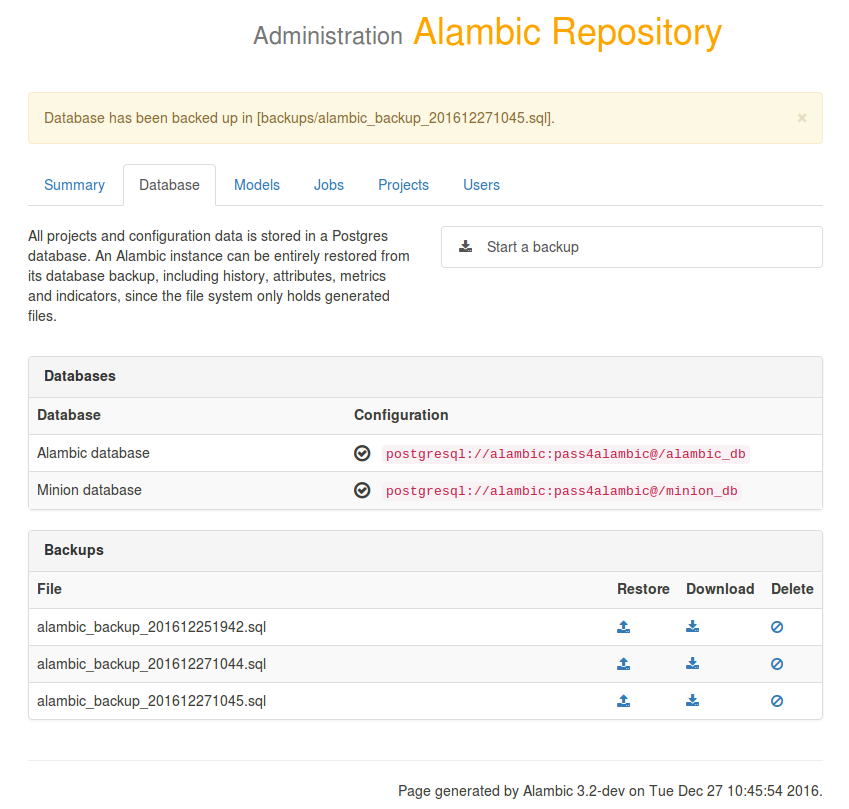Backups in Alambic
In Alambic all important data is stored in the database. It means that all file system files can be regenerated with a single run from the information stored in database, with the only exception of the main configuration file alambic.conf, which stores database information.
Data preserved in database includes:
- The instance configuration: name, description.
- Users configuration (with hashes as passwords).
- Models attributes, metrics and quality models.
- Projects configuration, information, custom data, and runs.
It is recommended to backup the Alambic instance regularly, and before any heavy administration operation (e.g. update).
Executing backups from the UI
The admin section has its own system for backups and restore.

The backup basically generates a SQL file which can be fed to another (or the same, btw) server, using interfaces like psql or pgAdmin. Backup files are stored on the file system (in $MOJO_HOME/backups) and can be downloaded from the web interface. Administrators can restore a backup file by clicking on the upload icon next to the file -- note however that this will erase all current values and replace them with the restored data.
Executing backups from the CLI
There is an Alambic command for backups:
$ bin/alambic alambic backup
Database has been backed up in [backups/alambic_backup_201612271112.sql].